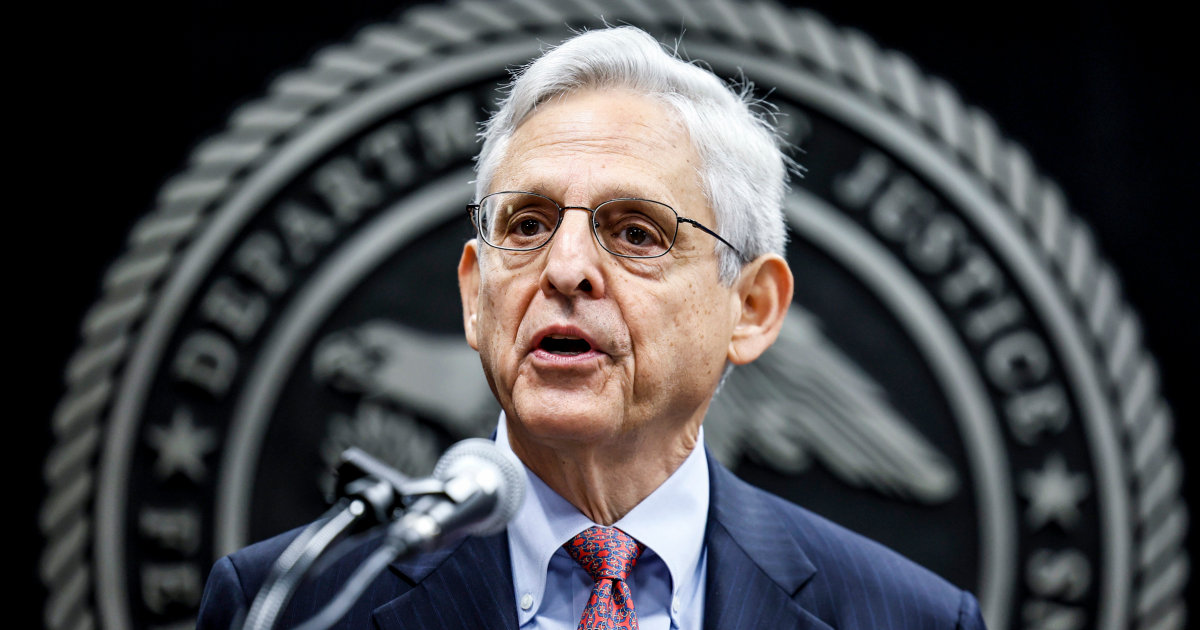Attorney General Merrick Garland’s decision to appoint a special counsel to investigate former President Donald Trump is a miscalculation, with the main problem being timing.
The stunning sweep of the mandate Garland conferred on special counsel Jack Smith likely doomed a prompt and focused determination of whether Trump should be indicted.
The stunning sweep of the mandate Garland conferred on special counsel Jack Smith likely doomed a prompt and focused determination of whether Trump should be indicted.
Despite assurances from Garland that a special counsel will not bog down the investigation, reality suggests otherwise. Smith will oversee not one but two ongoing investigations: The efforts to disrupt the counting of the Electoral College ballots on Jan. 6, 2021, and Trump’s possession of classified documents and presidential records at his Mar-a-Lago home after leaving office.
For the first one alone, the attorney general has directed Smith to investigate whether “any person or entity unlawfully interfered with the transfer of power following the 2020 presidential election or the certification of the Electoral College on or about January 6, 2021.”
Looking into “any person or entity” is a very wide scope that is time-consuming and shifts the focus away from Trump. It should not take long for Smith to be briefed by the existing Justice Department team, but Garland’s broad mandate could undermine the goal of making final prosecutorial decisions long before the 2024 presidential primaries.
When Garland announced the move Friday, he noted that Trump launching his 2024 presidential campaign played a part in his decision to name a special counsel. According to the attorney general, a special counsel appointment “underscores the department’s commitment to both independence and accountability in particularly sensitive matters.”
But the newly named special counsel will inherit the team of FBI agents and government prosecutors who have been conducting these investigations for months. If there were any taint of bias by these investigators — and there is none — then simply allowing the same Justice Department personnel to continue the investigation under a new boss wouldn’t cure any claimed conflict. Smith will simply be a new supervisor for the same investigators.
Additionally, Garland’s comments implicitly acknowledged the perception that a standard by-the-book investigation of Trump by the Justice Department could be perceived as an appearance of a conflict of interest, which undermines his own oft-repeated statement that no one is above the law. Not to mention that past practice demonstrates that the Justice Department has regularly shown that anyone can be held accountable — without resorting to a special counsel. Examples abound.
Famously, local federal prosecutors investigated Spiro Agnew while he was vice president for taking bribes when he was an official in Maryland. Attorney General Elliot Richardson negotiated a plea agreement, which required Agnew to immediately resign from office in October 1973.
It’s also commonplace for Justice Department lawyers to investigate and indict sitting members of Congress. Former Republican Reps. Chris Collins of New York, Duncan Hunter of California and Jeff Fortenberry of Nebraska were indicted by federal prosecutors and convicted. Collins and Hunter were indicted during the Trump administration, and Fortenberry was indicted last year. Trump subsequently pardoned Hunter, and Fortenberry is appealing his conviction.
Regular government lawyers have also successfully prosecuted politicians in the opposing party of the one controlling the White House. During the Trump administration, for example, the Justice Department indicted former Democratic Rep. Michael Myers for election fraud. He pleaded guilty and, in September, was sentenced to 30 months in prison. No special counsel was used.
And the alleged offense at the center of the Mar-a-Lago probe also has a precedent of being handled by rank-and-file Justice Department lawyers. During the George W. Bush presidency, that’s how Sandy Berger, a former Clinton administration official, was successfully prosecuted for illegally possessing classified documents.
The fact that Trump is a former president or running for re-election makes no difference. Alexander Hamilton, in Federalist 65, envisioned that a former president could be criminally prosecuted after leaving office for his past conduct, writing that “he will still be liable to prosecution and punishment in the ordinary course of law.” And in 2020, the Supreme Court ruled that Trump could be investigated by the Manhattan district attorney while in office.
The appointment of a special counsel fails to achieve the perceived desire to distance Garland from the decision of whether to indict Trump.
Moreover, the appointment of a special counsel fails to achieve the perceived desire to distance Garland from the decision of whether to indict Trump. Initially, Smith will determine who, if anyone, will be criminally charged, but Garland can overrule Smith’s decision if he so chooses.
Under government regulations, the attorney general can conclude that “a proposed action by a Special Counsel was so inappropriate or unwarranted under established Departmental procedures that it should not be pursued.” If Smith indicts Trump, Garland can overrule it. If Smith chooses not to indict Trump, Garland can overrule it. And even if Garland decided not to overrule Smith, critics would still question why didn’t he, since he had the authority to do so. The bottom line is Garland will remain at the center of it all.
Following Garland’s announcement, Trump urged Republicans to “fight” the special counsel’s inquiry. Georgia Rep. Marjorie Taylor Greene called for Garland’s impeachment and for the special counsel to not get any funding in a tweet, and Texas Sen. Ted Cruz tweeted, “This is Trump derangement syndrome but this time with a gun and badge. #JusticeCorrupted.”
Putting the extreme partisan reaction of GOP leaders aside, assigning a special counsel was indeed a blunder on Garland’s part, especially if Smith adheres literally to his broad mandate to investigate whether “any person” unlawfully interfered with the peaceful transition of power. That’s a tall order. I believe Trump’s day of reckoning is long overdue, and Garland’s overly cautious decision to appoint a special counsel may continue postponing that day.
Share your story or advertise with us: Whatsapp: +2347068606071 Email: info@newspotng.com












